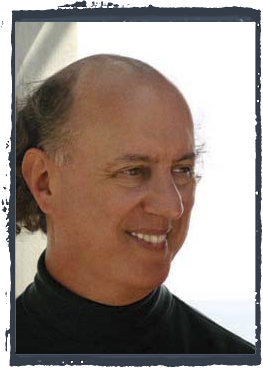My godfather, Eugene Hochman, was born in Hungary, 1900, into a family so poor that they sometimes “ate poetry” (as he told me) instead of food. As a teen-ager, he won the Hungarian national prizes for poetry-writing, essay-writing and mathematics. The first two came naturally to him; the mathematics, not; so his brother–who had won previously–tutored him in math because the family needed the prize money of about $100. And Eugene won.
One of the prizes included a visit to the Tokaji wine-growing district, where visitors had to remove their shoes before entering. It was said of Tokaji Essencia, the rarest of the wines, that a sip on your deathbed would restore you to the living.
As young men, Eugene and his brother made a little money tutoring the children of wealthy families. Eugene would accept an invitation to eat with the family after the lesson; his brother would not.
Sometimes Eugene walked by orange groves with a friend, each young man with hat clasped to chest. With a knife in the other hand, each would deftly cut an orange from a branch hanging over the dusty path, catching the fruit between hat and chest without disturbing the rhythm of the conversation. This was physically tricky, and dangerous, too; for the theft was a capital offense.
But even with prizes won, and oranges stolen, still, they sometimes had to “eat poetry.” Hungary had an unusual relationship with this art. Eugene told me proudly that a poet publicly reciting a poem in Budapest once started a revolution. He was so proud of the power of his chosen art! Does music have that power for us? Does it have for us a nutritional value that can substitute for food? Could we in fact eat music as he ate poetry?
When Eugene and his brother moved to Toledo, around 1920 (one older lady told me), people would gather to watch the brothers play tennis on the public courts, “looking” (she said) “like Greek gods.”
Somewhere in those early years in America, the brother died. This was cited to me as the effect of his too-great pride in refusing to accept meals from those wealthy families.
When I knew Eugene, he made his living as a visiting teacher for the board of education; and wrote plays and poetry in after-hours. Occasionally one of his plays won a prize or a production.
He was also a scratch golfer on the championship Inverness course, and a gardener whose back yard was a riot of flowers—six-foot gladioli!—that people drove distances to see on the weekends.
When he was old and ill, I remembered about Tokaji Essencia, and brought him a bottle. It did not prevent his death; but for a little while, it returned to him his youthful, barefoot visit to the wine-growing district, and he told stories I’d not heard before.
My father was born in Russian Poland, 1914. His first orange and first banana were gifts from American soldiers; he peeled the banana and ate the peel. Like Eugene, he came to the USA in 1920. I don’t know where or when the two met.
My mother was born in Toledo 1919 and married Dad 1938. As a young bride, she came home from the market one day and realized she’d paid for one more orange than she’d taken. “The next time I shopped,” she told the story in later years, “I decided I would correct the error without bothering the store manager. So I paid for a dozen and a half, but I took seventeen!” She was middle-aged before she realized what she’d done.
Many years later, when our David was a boy, he and Mom were driving with us on a dusty back road through an orange grove, the fruit hanging almost overhead. Suddenly, she cried, “Stop! Stop the car!” What danger was she seeing? There were no other vehicles! Disturbed, I pulled onto the dirt. Mom quickly got out and strode up to a low-hanging branch; pulled and snapped off an orange; and ran back to the car. Jumping in and slamming the door, she cried, “Go! Go!” gesturing with both hands. As we pulled onto the asphalt, she murmured, “I’ve always wanted to do that.”
Thus, in our family, oranges went from capital crime to funny stories. But even eating all the oranges we want, we’re still inspired by those who know what it is to eat poetry.
To Eugene, I must have seemed an impossibly lucky, utterly unaware young person. (I was.) To me, he was an artist giving what an artist gives: his life; given to the students he helped and the art he made; an art whose products might be edible, indeed.
